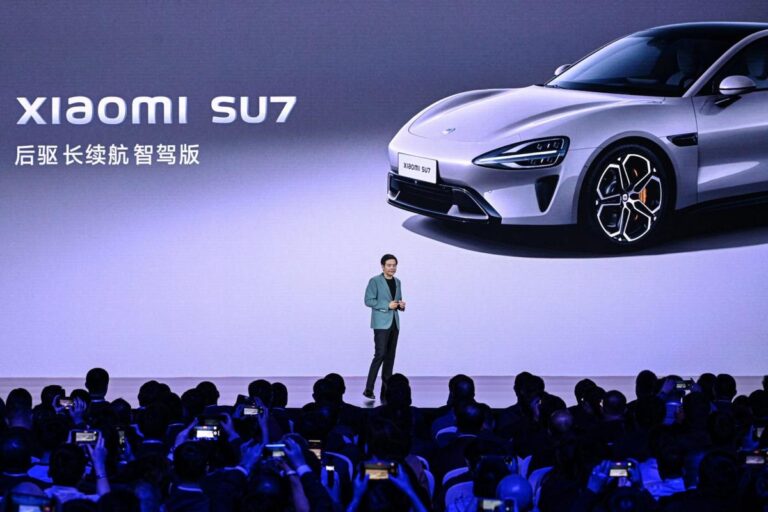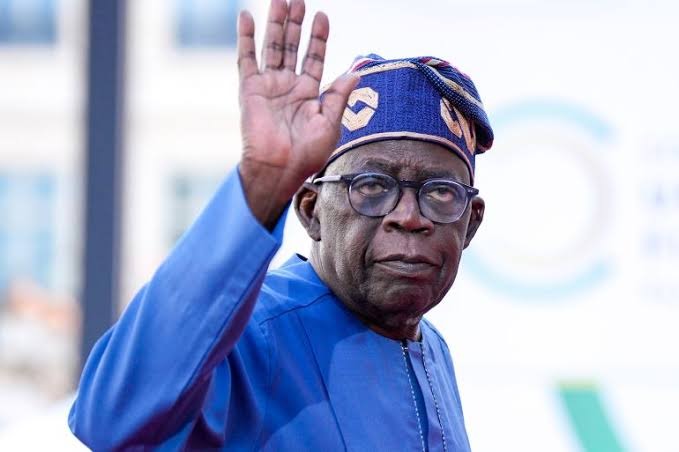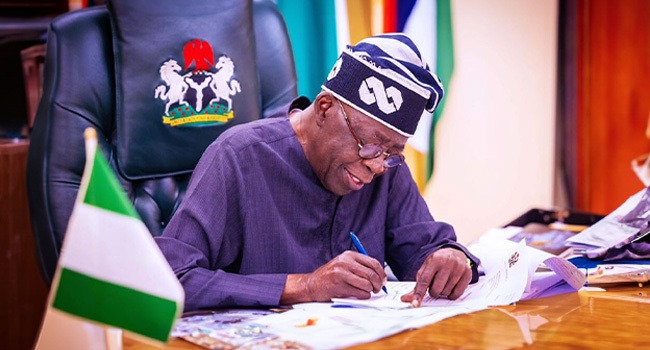Just days following the debut of its inaugural electric vehicle (EV), Chinese smartphone manufacturer Xiaomi has informed buyers that they may face a wait of up to six months for their vehicle to be delivered.
Screenshots circulating on Chinese social media platforms display the company advising customers that the delivery of the SU7 Max could take as long as 27 weeks.
Xiaomi had previously announced that pre-orders had surged to 88,898 within the initial 24 hours of opening orders on Thursday.
As of now, Xiaomi has not responded to a request for comment from the BBC.
The tech giant, renowned as the world’s third-largest smartphone vendor with a market share of approximately 12%, is entering the electric vehicle arena, competing against established EV brands such as Tesla and BYD in the world’s largest automobile market.
The base SU7 model is priced at 215,900 yuan ($29,872; £23,663), while the Max variant costs 299,900 yuan.
In China, Tesla’s Model 3 starts at 245,900 yuan.
The SU7, drawing comparisons to Porsche’s Taycan and Panamera models, boasts a minimum range of 700km (435 miles), surpassing the Tesla Model 3’s 567km.
In a bid to promote the SU7, Xiaomi has introduced special editions of the vehicle dubbed the Founder’s Edition, offering complimentary gifts such as fridges.
Xiaomi’s CEO, Lei Jun, announced on Sunday via a Weibo post the commencement of a second round of sales for the Founder’s Edition.
The company anticipates that the SU7’s shared operating system with its array of devices, including phones and laptops, will resonate with its existing customer base.
Manufactured by a unit of state-owned carmaker BAIC Group at a facility in Beijing capable of producing up to 200,000 vehicles annually, Xiaomi’s EVs enter the market at a time when global EV sales growth has decelerated, leading to a price competition.
Tesla, led by billionaire Elon Musk, has slashed prices of its cars in China by thousands of dollars in recent months in response to price reductions by local competitors like the world’s top-selling EV maker, BYD.
Highlighting the hurdles confronting technology companies venturing into the electric vehicle (EV) market, iPhone manufacturer Apple reportedly scrapped its plans to develop an EV last month.
While BYD recently disclosed record annual profits, it acknowledged a slowdown in growth towards the end of the previous year.
Shanghai-based EV manufacturer Nio adjusted its first-quarter delivery forecast downwards, citing constrained consumer spending amid China’s waning economic expansion.
Tesla, the American EV behemoth, is set to unveil its delivery figures for the first quarter of 2024 this week. The company’s shares saw a nearly 30% decline in the initial quarter.
Xiaomi has committed to invest $10 billion (£7.9 billion) in its vehicle division over the next decade.



























